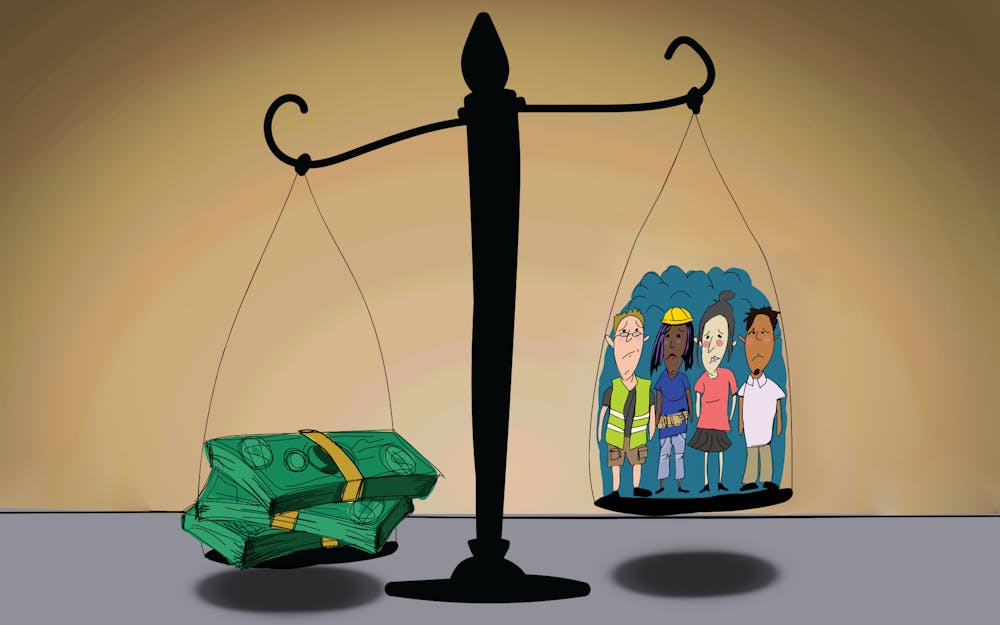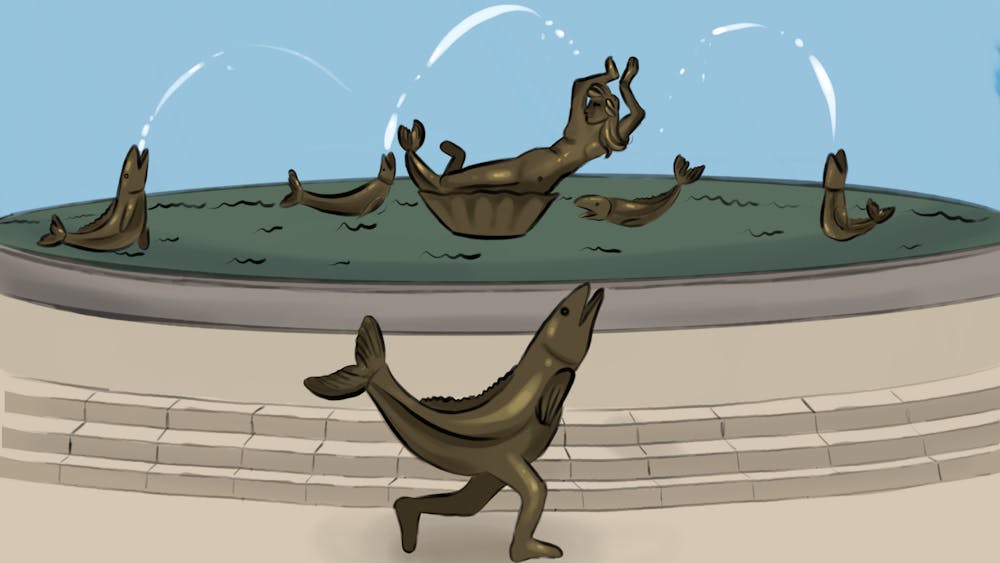In America, 10% of the population controls half of the wealth. Corporations grow to enormous sizes, destroying small business competition. Capitalism is doing something dangerous to our free-market economy.
The debate around capitalism is admittedly trite. However, I want to defend free-market economics and clear its name from capitalists who falsely praise it and socialists who genuinely hate it. Both sides frequently misunderstand it.
A persistent false dichotomy from the Cold War era suggests a free-market economy is one and the same with capitalism, and the only alternative to capitalism is Marxism, socialism or communism. The misconception lumps these complicated ideas together into a mess of meaningless ‘isms.’
Defining capitalism isn’t easy, but it can be best understood in three consecutive parts: private ownership of production, accumulation of profit and capital and then the creation of a powerful ruling class.
It’s worth noting modern socialism and its many offshoots are designed to be antitheses of capitalism. Modern socialism is a system under which a central power plans most if not all economic activity. The other 'libertarian' form of socialism, sometimes called democratic socialism, involves worker-owned business which has a place within a free-market economy.
The problem is a small group of bureaucrats directing the economy couldn’t improve conditions any more than a small group of industrialists could. The wants and needs of people are too big of an undertaking for any one group to properly handle, so the system works best when it is democratized.
Both capitalism and socialism are dogmatic ideologies that serve no useful purpose in real economics. As Rev. Martin Luther King said, “Communism forgets that life is individual. Capitalism forgets that life is social.”
The free-market economy, or classical liberal economics, is a vibrant ecosystem of exchange and commerce. By its nature, it craves balance between supply and demand, investor and investee, producer and consumer and employer and employee in a concept known as “economic equilibrium.”
This can only be achieved on the condition that everyone has equality of opportunity and plays by the same set of rules. These concepts are often talked about but rarely implemented. Capitalism stands in the way of a fruitful free-market economy.
Capitalism, is much younger than the concept of a free market. Capitalism hijacked the free market economy and took it from a fluid system of exchange and regular wealth transfer to a rigid top-down power structure, perverting individualism and jeopardizing equality.
The cycle of wealth concentration and power consolidation in capitalism is designed entirely for short-term gain for a minority at the expense of long-term stability for everyone else.
Despite capitalists claiming to be against government intervention in the economy, capitalists have historically reaped huge benefits from influencing the government, such as lobbying to create public policy favoring industry interests under the guise of supporting "economic growth" or "stimulation.”
Capitalism inevitably generates massive wealth inequality in any nation because it's one-sided. With a total bias toward the capital owners, all the people who don’t own capital, such as the working and middle classes, are left out of the equation.
There's no such bias in the free-market economy. However, it functions best when wealth and money flow like water and circulate through the whole society. A natural redistribution of wealth occurs without the government having to force it.
According to The Atlantic, Adam Smith, known as the father of economics, who’s often falsely held as the founder of capitalism, believed the measure of a nation’s wealth and prosperity is how well the poorest folks are doing. Smith challenged the colonizer economics of mercantilism, a system sharing more in common with capitalism than Smith’s classical economics ever did.
Smith is one of our best allies in proving the illegitimacy of capitalism. He reminds us that it all comes down to power. Capitalism, like mercantilism and feudalism before it, ensures power is concentrated into the hands of a special few, but the free market system was a radical new invention that brought democracy to the economy.
Capitalism is a money-centered system, whereas the free market was made for, of and by human beings. The free market is a system much like language, culture and science in that it is indispensable to the development of human society.
Capitalism on the other hand? We're better off without it.
Eric Reingardt (he/him) is a freshman studying pre-law. He is a freelance writer with a profile on Substack.






